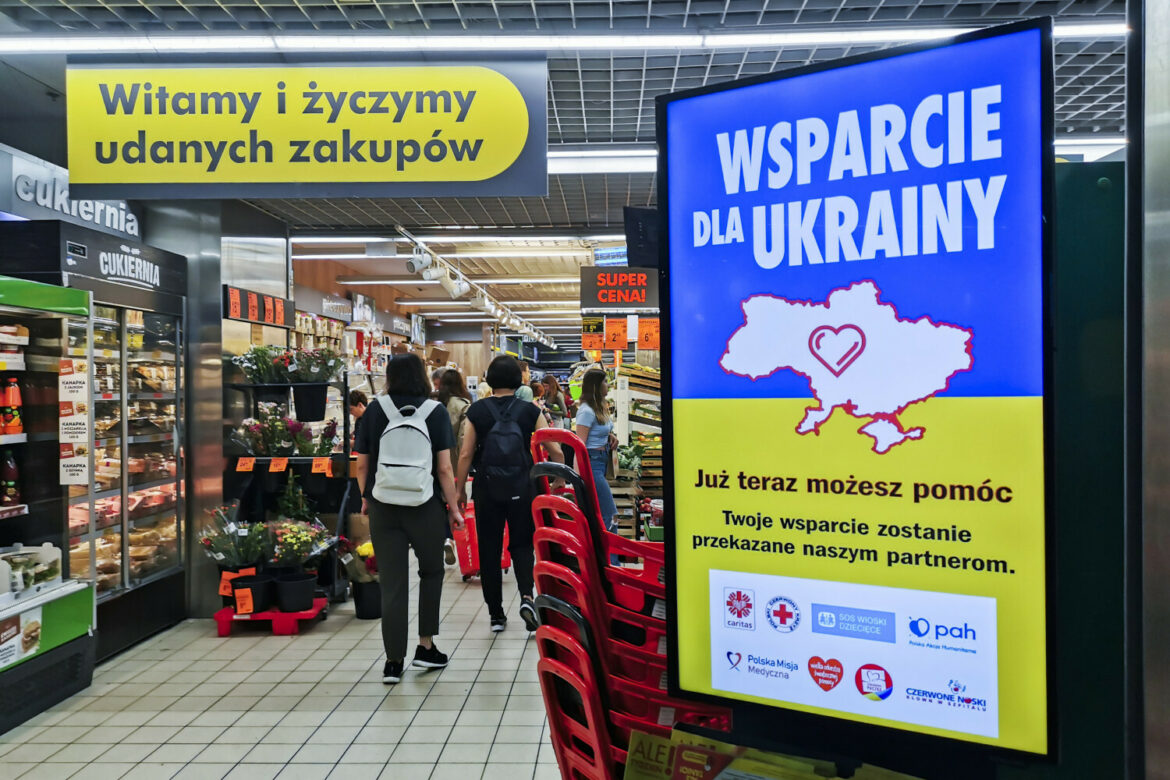According to estimates by the Polish Economic Institute (PIE), in the first three months since the start of Russia’s invasion of Ukraine, 70% of Poles were involved in helping refugees. The estimated value of private spending for this purpose could have amounted to as much as PLN 10 billion, or 0.38% of GDP, during the period under review.
This compares with private charitable spending of PLN 3.9 billion in the whole of 2021. The total value of aid provided to refugees by the authorities and Polish citizens amounts to nearly 1% of Polish GDP.
“The estimated value of the total annual spending by public authorities to help refugees, together with the amount of private spending by Poles for this purpose in the first 3 months of the war alone, is a total of PLN 25.4 billion – equivalent to 0.97% of Polish GDP in 2021”, says Piotr Arak, director of PIE.
“The most popular forms of support were in-kind aid and cash transfers. 59% of respondents engaged in buying needed items and 53% donated money to refugees”, says Agnieszka Wincewicz-Price, head of the behavioural economics team at PIE, discussing the research in PIE’s latest report ‘Polish society’s assistance to refugees from Ukraine’.
Among people with the highest incomes (over PLN 5,000 net), the percentage who provided relatively most assistance to refugees was three times higher than among persons with the lowest incomes (under PLN 2,000). However, even among those earning a net income of less than PLN 2,000, involvement in assistance was quite common – only 26% of people in this group did not help in any way. Education level also proved to be important. People with higher education were more involved in helping – by about 10% compared to people in other groups.
Adrian Andrzejewski





